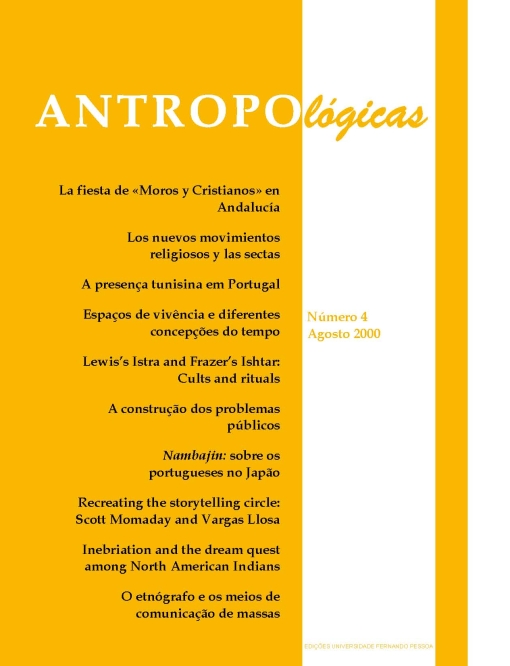"Drunkenness and dreams". Inebriation and the dream quest among North American indians
Resumo
Este artigo argumenta que, juntamente com os sonhos, a embriaguez é percebida pelos Índios da América do Norte como um meio de comunicação com o mundo do espírito. Os primeiros missionários cristãos explicavam a paixão dos nativos pela bebida pela sua auto-avaliação exagerada e pelo desejo de poder, pensando que o álcool e os sonhos constituíam os obstáculos principais para a conversão dos Índios ao Cristianismo. Por outro lado, as explicações dos indígenas para este fenómeno são diferentes das dos observadores brancos. Como é sugerido pelos exemplos das tribos de Ojubwa, de Potawatomi, de Ottawa e muitas outras, os Índios explicam a ligação entre embriaguez e sonhos pela ausência temporária da alma que se encontra a viajar no mundo do espírito. É por isso que uma pessoa embriagada pode ser vista como ‘sagrada’. O álcool, por si só, não causa halucinações, mas o sonho profundo que ele provoca pode ser uma maneira de experienciar ‘visões sagradas’.Downloads
Edição
Secção
Artigo de fundo
Licença
Autores que publicam nesta revista concordam com os seguintes termos:
- Autores conservam os direitos de autor e concedem à revista o direito de primeira publicação, com o trabalho simultaneamente licenciado sob a Licença Creative Commons Attribution que permite a partilha do trabalho com reconhecimento da autoria e publicação inicial nesta revista.
- Autores têm autorização para assumir contratos adicionais separadamente, para distribuição não-exclusiva da versão do trabalho publicada nesta revista (ex.: publicar em repositório institucional ou como capítulo de livro), com reconhecimento de autoria e publicação inicial nesta revista.
- Autores têm permissão e são estimulados a publicar e distribuir o seu trabalho online (ex.: em repositórios institucionais ou na sua página pessoal) a qualquer ponto antes ou durante o processo editorial, já que isso pode gerar alterações produtivas, bem como aumentar o impacto e a citação do trabalho publicado (Veja O Efeito do Acesso Livre).


